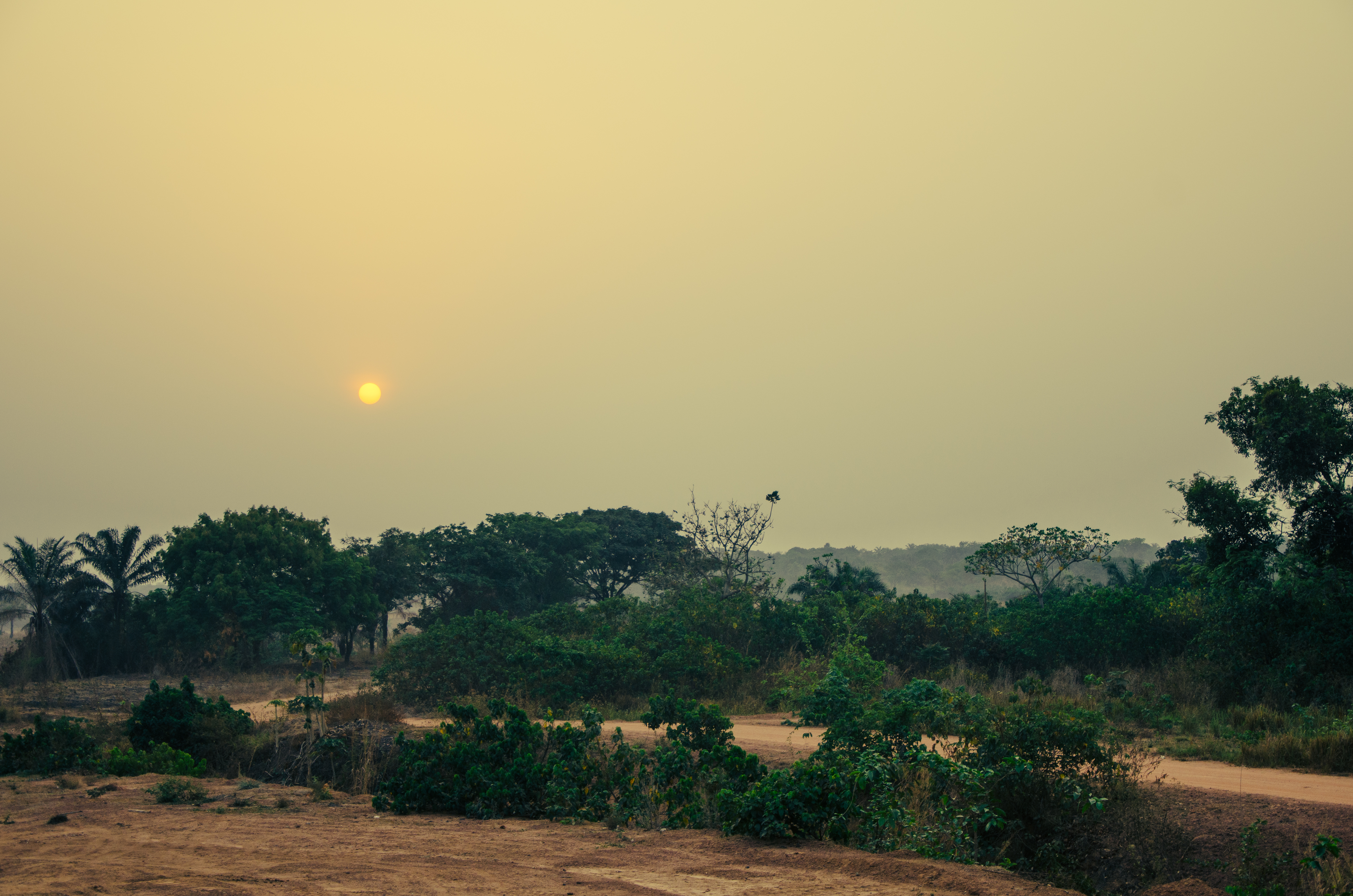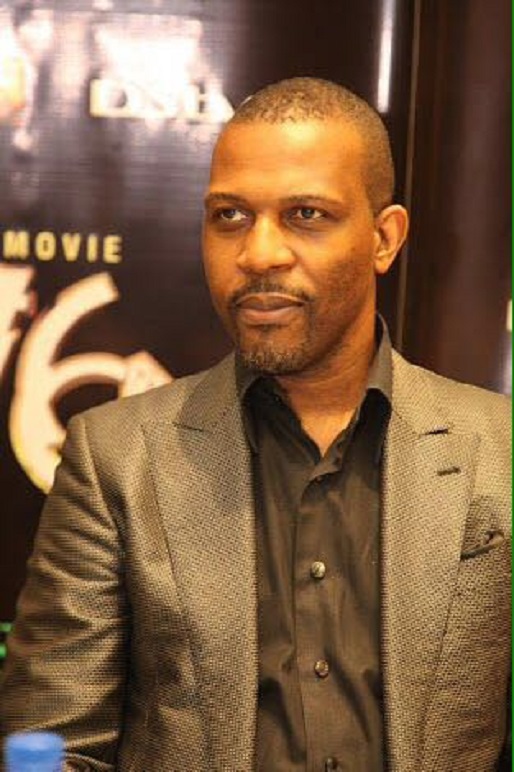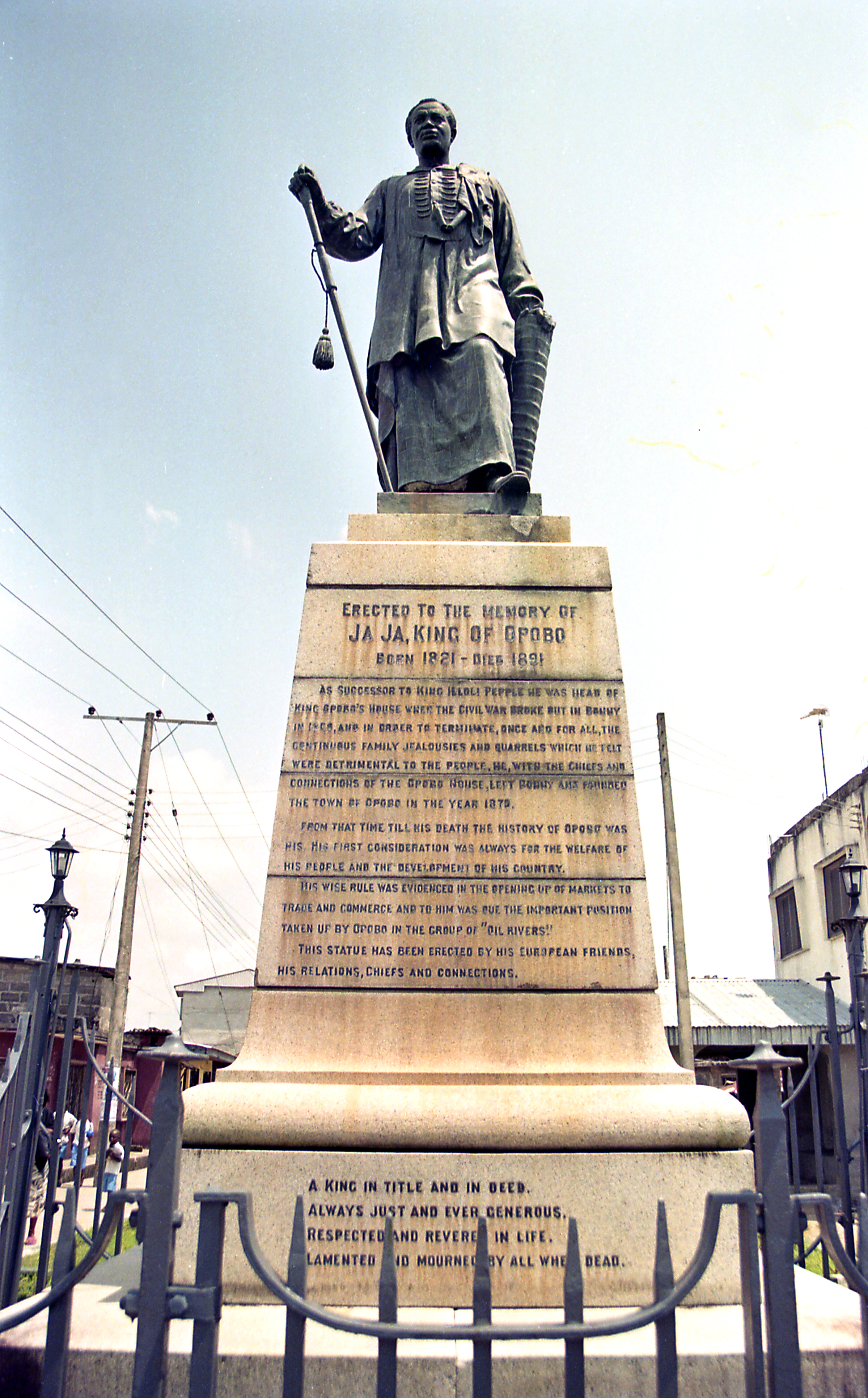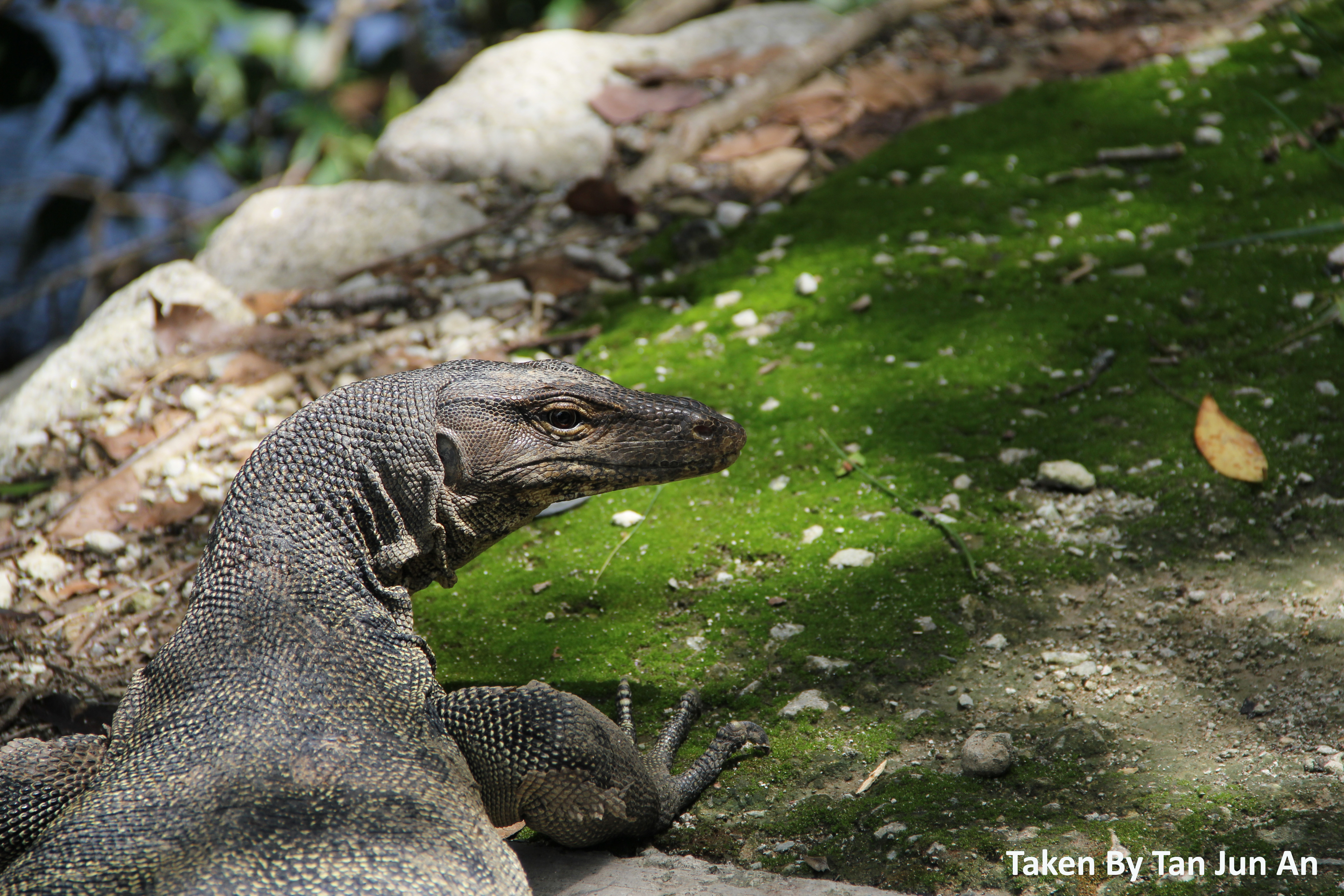|
Kalabari Kingdom
The Kalabari Kingdom, also called Elem Kalabari ( Kalabari: ''New Shipping Port''), is the independent traditional state of the Kalabari people, an Ijaw ethnic group, in the Niger River Delta. It is recognized as a traditional state in what is now Rivers State, Nigeria. The Kingdom was founded by the great Amachree I, forefather of the Amachree dynasty, which is now headed by the Princewill family. The Kingdom is ruled and controlled by King Amachree XI (''Professor Theophilus Princewill CF''R), along with his Council of Chiefs, most of whom are royal princes. Together, they make up the traditional Kalabari ruling house, similar to a monarchy. People and customs According to one tradition, the Kalabari people originally came from Calabar (called "Old Calabar" by the Europeans), a site further to the east occupied by Efik people. This may have been a 19th-century invention. The Efik themselves say the name "Calabar" was given to their town by the Europeans. Other traditions sa ... [...More Info...] [...Related Items...] OR: [Wikipedia] [Google] [Baidu] |
Nigerian Traditional State
There are many traditional states in Nigeria. A partial list follows. Although the traditional rulers no longer officially have political power, they still have considerable status in Nigeria and the power of patronage. Except where otherwise noted, names of traditional rulers are based on the World Statesmen.org list. See also *Nigerian Chieftaincy *Nigerian traditional rulers Nigerian traditional rulers often derive their titles from the rulers of independent states or communities that existed before the formation of modern Nigeria. Although they do not have formal political power, in many cases they continue to comma ... References {{Nigerian traditional states Traditional states of Nigeria States Traditional states ... [...More Info...] [...Related Items...] OR: [Wikipedia] [Google] [Baidu] |
Igboland
Igboland (Standard ), also known as Southeastern Nigeria (but extends into South-Southern Nigeria), is the indigenous homeland of the Igbo people. It is a cultural and common linguistic region in southern Nigeria. Geographically, it is divided by the lower Niger River into two sections: an eastern (the larger of the two) and a western one. Its population is characterised by the diverse Igbo culture and the speakers of equally diverse Igbo languages. Politically, Igboland is divided into several southern Nigerian states; culturally, it has included several subgroupings, including the Anioma, the Ngwa people, Ngwa, the Aro people, Aro, the Edda people, Ezza, the Ibeku, the Ohuhu people, Ohuhu, the Oboro (Nigeria), Oboro, the Ikwerre people, Ikwerre, the Ogba people, Ogba, the Omuma, the Ohafia, the Oyigbo, the Mbaise, the Isu people, Isu and the Ekpeye. Territorial boundaries Igboland is surrounded on all sides by large rivers, and other southern and central Nigeria indigenous tr ... [...More Info...] [...Related Items...] OR: [Wikipedia] [Google] [Baidu] |
History Of Nigeria
The history of Nigeria can be traced to the earliest inhabitants whose remains date from at least 13,000 BC through early civilizations such as the Nok culture which began around 1500 BC. Numerous ancient African civilizations settled in the region that is known today as Nigeria, such as the Kingdom of Nri, the Benin Empire, and the Oyo Empire. Islam reached Nigeria through the Bornu Empire between (1068 AD) and Hausa States around (1385 AD) during the 11th century, while Christianity came to Nigeria in the 15th century through Augustinian and Capuchin monks from Portugal. The Songhai Empire also occupied part of the region. From the 15th century, European slave traders arrived in the region to purchase enslaved Africans as part of the Atlantic slave trade, which started in the region of modern-day Nigeria; the first Nigerian port used by European slave traders was Badagry, a coastal harbour. Local merchants provided them with slaves, escalating conflicts among the ethnic group ... [...More Info...] [...Related Items...] OR: [Wikipedia] [Google] [Baidu] |
James Currey
James Currey is a former academic publisher specialising in African Studies which since 2008 has been an imprint of Boydell & Brewer. It is named after its founder who established the company in 1984. It publishes on a full spectrum of topics—including anthropology, archaeology, history, politics, economics, development studies, gender studies, literature, theatre, film studies, and the humanities and social sciences generally—and its authors include leading names such as Bethwell Ogot and Ngũgĩ wa Thiong'o. History Named after its founder, the company was established in 1984 when James Currey, originally from South Africa, left his position at Heinemann Educational Books to set up an Africa-focused publisher. At Heinemann, working with Chinua Achebe, Currey had spent more than a decade pioneering Heinemann's African Writers Series (AWS), the set of volumes that was a crucial factor in expanding the reach of African literature after World War II, particularly in En ... [...More Info...] [...Related Items...] OR: [Wikipedia] [Google] [Baidu] |
Prince Tonye Princewill
Prince Tonye Princewill (Tonye Princewill) (born 4 January 1969) is a Nigerian investor, politician, film producer and philanthropist who was the 2015 Labour Party and 2007 Action Congress nominee for Governor of Rivers State. He is currently a member of the All Progressives Congress (APC) and the son of King T.J.T. Princewill of the Kalabari Kingdom of Rivers State, Nigeria. Early life and education Prince Tonye Princewill was born in the UK to the family of the present King (Prof) T.J.T. Princewill, the Amanyanabo of Kalabari Kingdom of the Amachree Dynasty of Rivers State. His father was a Professor of Medical Microbiology before he became a monarch. His mother, Ibiere Princewill, an entrepreneur and notably successful in Distribution and Farming, passed away in 2000. Tonye Princewill started his early education in the United Kingdom, before returning with his parents to Nigeria, where he enrolled at Hillcrest High School in Jos from 1976–1980. He then attended Federal G ... [...More Info...] [...Related Items...] OR: [Wikipedia] [Google] [Baidu] |
Buguma
Buguma City is a larger town in Rivers State, Nigeria. It is the headquarters of the Asari-Toru Local Government Area and base of the Kalabari Kingdom, a Nigerian traditional state. The town has an official Post Office and a big set of commercial fish ponds set up by the State Government. The Current Mayor, popularly addressed as Chairman, of the LGA, which Buguma City is the headquarters, is Hon. (Amb) Onengiyeofori George (Starboy). It is also home to the great King Amachree of the Kalabari kingdom. In 1983, Buguma was designated a city by the Government of Melford Okilo and that status subsists to date.The Official Gazette of Rivers State of Nigeria No. 16, published in Port Harcourt on the 25th of August 1983 referred to “Buguma City Council”; the only other City Council after Port Harcourt City Council. Notable people * Hilda Dokubo * Taribo West * Tam David-West *Rex Lawson Rex Jim Lawson (4 March 1938 – 18 January 1971), known as Cardinal Rex, was a singer, tr ... [...More Info...] [...Related Items...] OR: [Wikipedia] [Google] [Baidu] |
Abonnema
Abonnema, originally known as Nyemoni (which means "covet your own" in the Kalabari dialect of the Ijaw language), is a large town in the Kalabari Kingdom that was founded in 1882. Its territory was discovered by an expedition of four independent chieftaincy houses from the Kalabari city-state (Elem Kalabari). History The founders included Chief Ekine Bob-Manuel who sat on the Owukori Manuel stool and served as the first (Amanyanabo), Chief Young Briggs who sat on the Oruwari Briggs stool, Chief Akpana Georgewill who sat on the Otaji stool, Chief Kaladokubo Standfast Jack who sat on the Iju-Jack stool. These are the four founding houses of Abonnema. Accompanied by these four founding fathers were Chief Opu-Benibo Granville, Chief Orubibi Douglas, Chief Ngbula Blackduke Oweredaba, Chief Ajumogobia Bestman, Chief Young-Jack, Chief Kala-Akpana Don-Pedro and Chief Aribimeari Membere . The Abonnema Kingdom is currently made up of the four various founding houses. The houses are headed ... [...More Info...] [...Related Items...] OR: [Wikipedia] [Google] [Baidu] |
Opobo
Opobo is a community in Rivers State, in the South South region of Nigeria. The kingdom was founded in 1870 by Jubo Jubogha, popularly known as JaJa, an Igbo man who owned slaves. The native language of Opobo is the Ibani language that is spoken in Bonny. A greater part of the city state is still referred to as Opobo in Rivers State. Opobo is made up of several islands and communities which is in Opobo–Nkoro Local Government Area in the South South Senatorial District of Rivers State Nigeria. The communities include Opobo Town, which is its headquarters, Queenstown, Kalasunju, Oloma, Ayaminimah, Iloma, Minimah, Okpukpo, Iwoma, Ekereborokiri, Kalaibiama, Epelema, Ozuobulu, Muma Down Below, Inokiri and Abazibie. Opobo's geologic setting is similar to the coastal and estuarine settlements of the Niger Delta region. It is located at the mouth of the Imo River, one of the main estuaries that break the Nigerian coastline. The approximate geographical co-ordinates of the kingdom are 04 ... [...More Info...] [...Related Items...] OR: [Wikipedia] [Google] [Baidu] |
Jubo Jubogha
King Jaja of Opobo (full name: Jubo Jubogha; 1821–1891) was the first king (amanyanabo) of Opobo. He was also the founder of Opobo city-state in present day Rivers State of Nigeria. Born in Umuduruoha Amaigbo in present-day Imo State, his actual birth date, as well as his birth parents, is unknown. Jaja earned his way out of servant hood (apprenticeship) after serving his master for some years. At the death of his master, he took charge of the trades and went on to head the Anna Pepple House merchant faction of Bonny. Under him, Anna Pepple absorbed other trade houses until a dispute with the Manilla Pepple House led by Oko Jumbo compelled Jaja to break away to form the Opobo city-state (26 miles east of Bonny) in 1869. Opobo came to be a prominent trading post in the region's palm oil trade. Jaja barred entry to European and African middlemen, effectively monopolizing trade, and by 1870 was selling eight thousand tons of palm oil directly to the British. Opobo also shipped ... [...More Info...] [...Related Items...] OR: [Wikipedia] [Google] [Baidu] |
Twon-Brass
Twon-Brass, previously known simply as Brass or Brasstown, is a community on Brass Island in the Nun River estuary of Southern Bayelsa State, Nigeria, in the Brass Local Government Area. The royal Chief is Alfred Diete-Spiff. The town is on the east shore of the Brass River, one of the branches of the Nun River, which in turn is a branch of the Niger River. Brass began as a mining village of the Nembe people. In the early 19th-century it was an important location in the slave trade. At one time the town was the main port of the Nembe Kingdom, called by one historian "the Venice of the Niger Delta", and was dominant in the palm oil trade of the region. When the Royal Niger Company became an increasingly strong rival in the trade, the town's economy was severely damaged. In January 1895 the Nembe king William Koko led a dawn attack of more than a thousand warriors on the company's headquarters at Akassa Akassa is a settlement at the southernmost tip of Nigeria in Bayelsa Sta ... [...More Info...] [...Related Items...] OR: [Wikipedia] [Google] [Baidu] |
Okrika
Okrika is an island in Rivers State, Nigeria, capital of the Local Government Area of the same name. The town is situated on an island south of Port Harcourt, making it a suburb of the much larger city. The average elevation of Okrika is 452 metres. It lies on the north of the Bonny River and on Okrika Island, 35 miles (56 km) upstream from thBight of Bonny The town can be reached by vessels of a draft of 29 feet (9 metres) or less. Formerly a fishing village of the Ijo (Ijaw) people in the mangrove swamps of the eastern Niger River(Delta), Okrika became the capital of the Okrika kingdom in the early 17th century and actively dealt in slaves. It served as a port for the exportation of palm oil after the abolition of the slave trade in the 1830s, but it was a less significant port facility than either Bonny (18 miles 6 kmsouth) or Opobo (32 miles 1 kmeast-southeast). By 1912, Okrika had been completely eclipsed by Port Harcourt, and it was not revived as a com ... [...More Info...] [...Related Items...] OR: [Wikipedia] [Google] [Baidu] |
Kingdom Of Bonny
The Kingdom of Bonny, otherwise known as Grand Bonny, is a traditional state based on the town of Bonny in Rivers State, Nigeria. In the pre-colonial period, it was an important slave trading port, later trading palm oil products. During the 19th century the British became increasingly involved in the internal affairs of the kingdom, in 1886 assuming control under a protectorate treaty. Today the King of Bonny has a largely ceremonial role. Introduction Bonny Kingdom was founded by Ndoli, a man from the Isedani lineage of Kolokuma in the Ebeni-toru region (in the present day Kolokuma/Opokuma Local Government Area of Bayelsa State. The Kingdom was founded before or about 1000 AD. Its modern name, "Bonny", is a corruption of the original ''Ubani''. An alternative name, ''Okoloama'' (lit. "The Island of Curlews"), is also widely used. The hereditary king, the ''Amanyanabo'', originated from the bloodline of the earliest kings of Bonny. The subsequent monarchs of the kingdom have ... [...More Info...] [...Related Items...] OR: [Wikipedia] [Google] [Baidu] |





